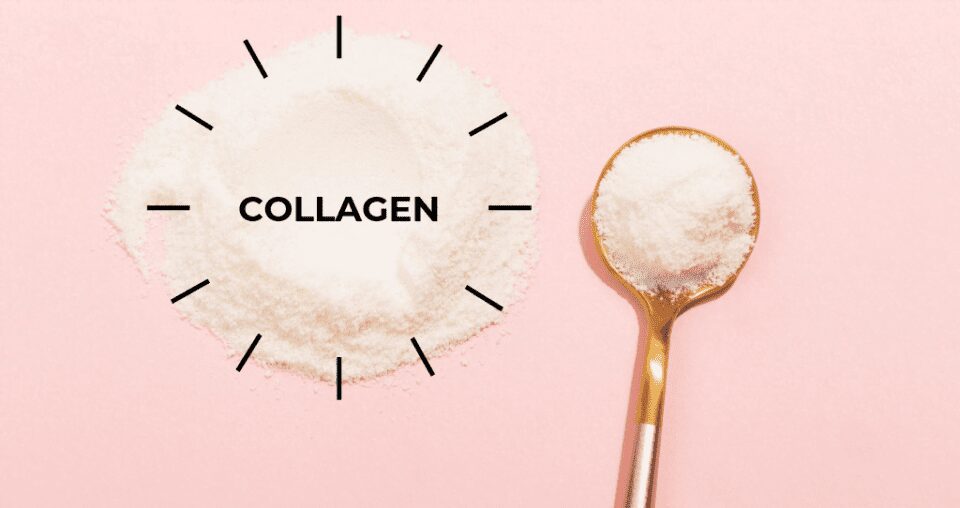⚠️ Medical Disclaimer
Important: This content is for informational and educational purposes only. It should not be used as a substitute for professional medical advice, diagnosis, or treatment. Always consult with a qualified healthcare provider before making changes to your diet, taking supplements, or if you have questions about a medical condition. Never disregard professional medical advice or delay seeking it because of information you read here.
Last Updated on February 5, 2024 by Grace Oluchi
Collagen is the ultimate beauty hack! It’s the secret ingredient that makes our skin glow and our hair shine. This protein powerhouse is essential for keeping our bodies strong and healthy. With collagen, you can say goodbye to wrinkles and hello to a radiant complexion. Add collagen to your daily routine and watch as your skin becomes supple and your hair becomes luscious. Don’t miss out on the benefits of this amazing protein – try collagen today!
What is Collagen?
Collagen is a protein that is found in the human body and is responsible for providing structure and strength to our skin, bones, muscles, and organs. It is the most abundant protein in the body, making up around 30% of the total protein content. Collagen helps to keep our skin looking youthful and elastic, as well as helping to maintain muscle and bone health.
It is produced in the body naturally, however, as we age, our bodies produce less and less of it. This is why we start to see wrinkles and loss of elasticity in our skin as we get older. In addition, collagen production can be affected by poor diet, smoking, and UV exposure.
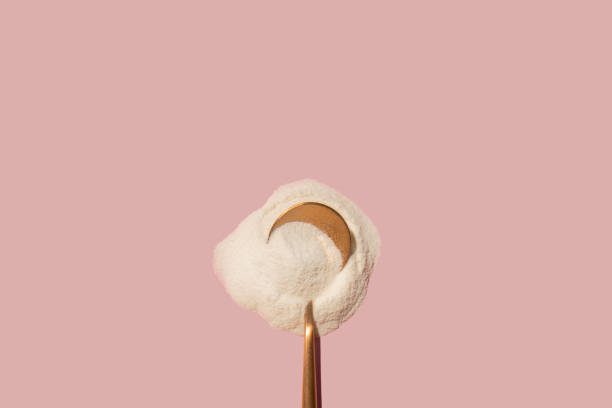

Fortunately, there are ways to boost collagen production in the body. Eating a healthy diet that is rich in antioxidants, vitamins, and minerals can help to promote collagen production. Eating foods such as fish, nuts, and leafy greens can also help to increase collagen production.
In addition, there are a variety of collagen supplements that are available on the market. These supplements can help to increase collagen production in the body, as well as providing other benefits such as improved joint health and reduced inflammation.
Health Benefits of Collagen.
Collagen is the most abundant protein in the human body and is essential for maintaining healthy skin, bones, joints, and muscles. It is a major component of connective tissues and provides strength and structure to many parts of the body. Collagen is also important for the health of hair, nails, and teeth. There are various health benefits of collagen, they include:


- Body’s healing and repair process: It helps to promote cell regeneration, reduce inflammation, and improve blood circulation. It is also essential for the production of elastin and other proteins that are critical for maintaining skin elasticity and firmness. Collagen helps to reduce wrinkles and fine lines, giving skin a youthful and healthy appearance.
- Joint health: It helps to cushion and lubricate joints and reduce the risk of arthritis and other joint-related conditions. Collagen can also help to reduce joint pain and improve mobility.
- Bone health: It helps to maintain bone strength and density and reduce the risk of fractures. Collagen also helps to keep bones strong and flexible, which can help to reduce the risk of osteoporosis.
- Muscle health: It helps to build and maintain muscle mass, which can improve athletic performance and reduce the risk of injury. Collagen can also help to reduce muscle soreness after exercise.
- Gut health: It helps to support the digestive system and reduce the risk of digestive conditions such as irritable bowel syndrome. Collagen can also help to improve nutrient absorption and reduce inflammation.
Overall, collagen is an important component of the body and has many health benefits. It can help to improve skin, joint, bone, and muscle health, as well as gut health. Making sure to get enough collagen in the diet is essential for maintaining good health.
Food Sources of Collagen.
Collagen is essential for maintaining the health and integrity of the body’s tissues and organs. It helps to keep skin firm and elastic, and it is important for wound healing. There are numerous food sources of it such as;
- Bone broth:
Which is made by simmering animal bones and connective tissues in water. Bone broth is high in collagen and other nutrients, such as amino acids and minerals. Other animal-based sources of collagen include organ meats, such as liver, and gelatin, which is derived from animal bones and connective tissues.
- Fish:
Fish is another excellent source of collagen. Fish skin is rich in collagen, as well as omega-3 fatty acids. Salmon, sardines, and mackerel are all good sources of fish collagen.
- Egg whites:
Egg whites are high in protein and contain type I collagen. Egg whites are also a good source of other nutrients, such as vitamin A, vitamin D, and selenium.
- Vegetables:
Some vegetables, such as tomatoes and peppers, contain a type of collagen called type II. Other vegetables, such as kale, spinach, and broccoli, are high in vitamin C, which helps to boost its production in the body.
- Fruits:
Some fruits are also a good source of collagen. Citrus fruits, such as oranges and lemons, contain a type of it called type III. Other fruits, such as apples, pears, and berries, are high in vitamin C, which can also help to boost its production.
Factors that Contribute to the Loss of Collagen in the Skin.
Collagen is an essential protein that makes up the majority of our skin, bones, muscles, and connective tissue. It is a key component in the body’s natural healing process and helps promote healthy skin, strong bones, and flexible joints. Unfortunately, as we age, our body’s natural production of collagen begins to decline. This can lead to wrinkles, sagging skin, joint pain, and other age-related health issues.
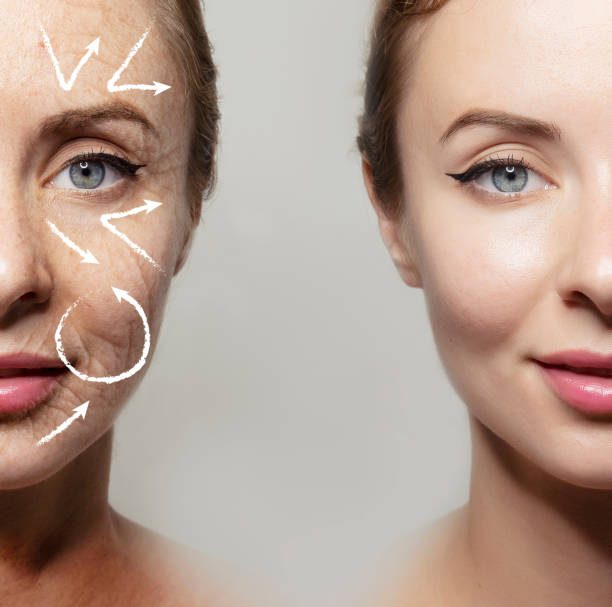

Collagen starts to degrade with age, and your genetics can affect how fast that degradation happens. “We lose collagen year after year, and make lower quality collagen,” says Dr Deanne Mraz Robinson, MD, a board-certified dermatologist at Modern Dermatology in Westport, Connecticut.
Environmental factors (like UV rays or pollution), bad lifestyle habits (smoking), and a poor diet all creates free radical formation, which speeds its breakdown.
What to Consider When Finding Supplements for Collagen.
Fortunately, there are a number of supplements available that can help support the production of it in the body and promote overall health and wellness. These supplements are typically made from natural sources such as fish, eggshell membrane, and bovine collagen. They can be taken orally or applied topically, depending on the product.
When looking for its supplement, it is important to choose one that is of high quality and contains the right type for your needs. For example, if you are looking to promote healthy skin, you should look for a supplement that contains type I or type III. If you are looking to support joint health, you should look for a supplement that contains type II.
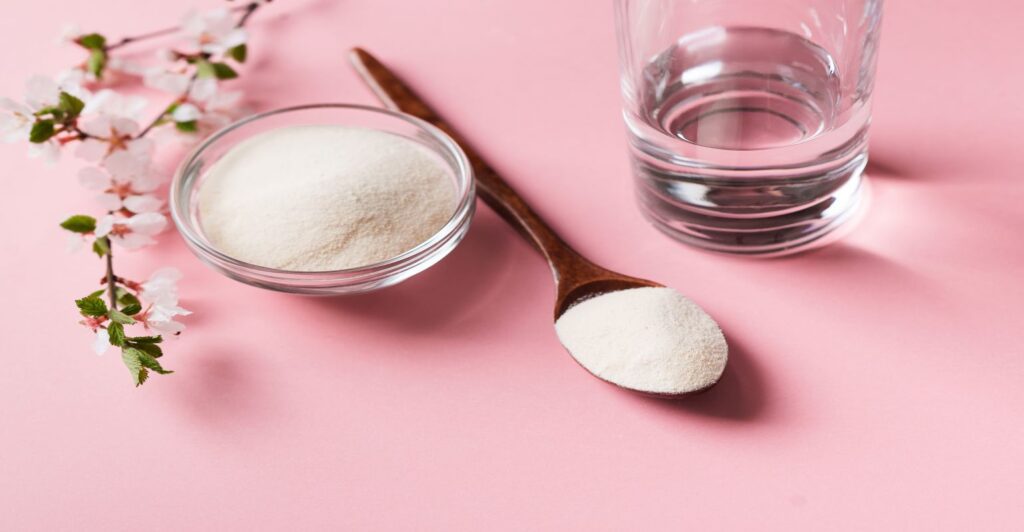

It is also important to look for a supplement that contains other beneficial ingredients such as vitamins, minerals, and antioxidants. These can help to support the body’s natural healing process and reduce inflammation. Additionally, it is important to choose a supplement that is free of fillers, additives, and preservatives.
When taking a supplement, it is important to follow the manufacturer’s instructions. Depending on the type of supplement, you may need to take it daily or multiple times per day. Additionally, it may take several weeks for you to start noticing the effects of the supplement.
The supplements can be a great way to support the body’s natural production of collagen and promote overall health and wellness. It is important to choose a high-quality supplement that contains the right type for your needs and is free of fillers, additives, and preservatives. Additionally, it is important to follow the manufacturer’s instructions and give the supplement time to take effect.
Types of Collagen.
There are more than twenty different types, each with its own unique structure and function.
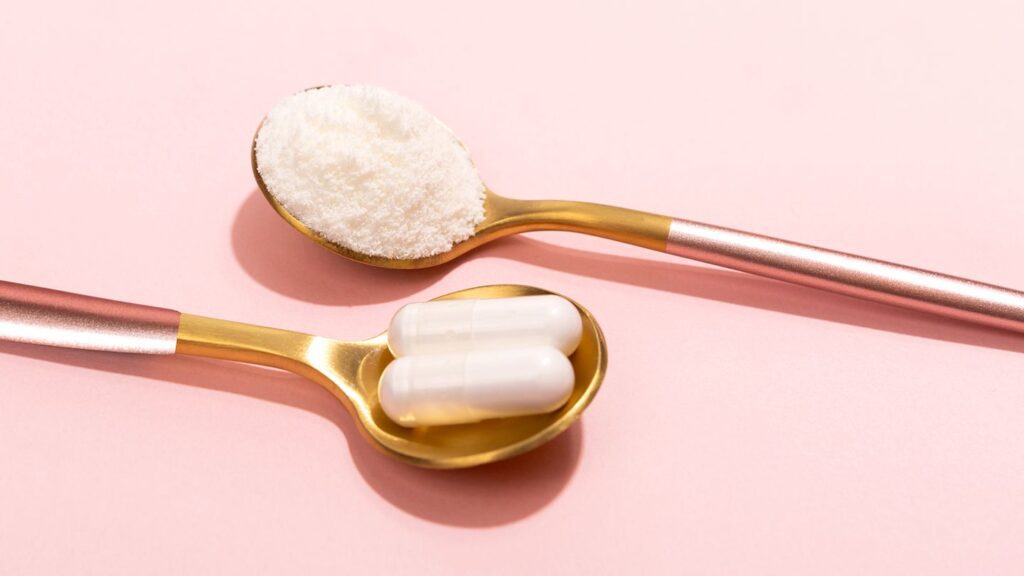

- Type I: The most abundant type of it, making up over 90% of the body’s total. It is found in skin, bones, tendons, ligaments, and organs. It is responsible for the strength and elasticity of the skin, and it helps to protect the organs and tissues from injury. Type I is also important for wound healing, as it helps to form new tissue and repair damaged tissues.
- Type II: Found primarily in cartilage and the vitreous humor of the eye. It is responsible for the cushioning and flexibility of the joints, and it helps to protect the bones from damage. Type II also helps to keep the vitreous humor of the eye clear and healthy.
- Type III: Found in the walls of blood vessels and organs, and it helps to keep them strong and flexible. It also helps to maintain the structure of the skin, and it plays a role in wound healing and tissue repair.
- Type IV: Found in the basement membrane, which is a thin layer of tissue that separates the skin from the underlying organs and tissues. It helps to keep the skin and organs separate, and it also helps to keep the skin hydrated and healthy.
- Type V: Found in the hair follicles, and it helps to keep them healthy and strong. It also plays a role in wound healing, and it helps to keep the skin and organs separate.
- Type VI: Found in the cornea of the eye, and it helps to keep it healthy and strong. It is also involved in wound healing, and it helps to keep the skin and organs separate.
More.
Collagen is a protein found in the human body and many other animals. It’s the most abundant protein in the body and is found in the skin, bones, muscles, and tendons. It is an essential part of the body’s structure and is responsible for providing strength and elasticity to the body’s tissues and organs.
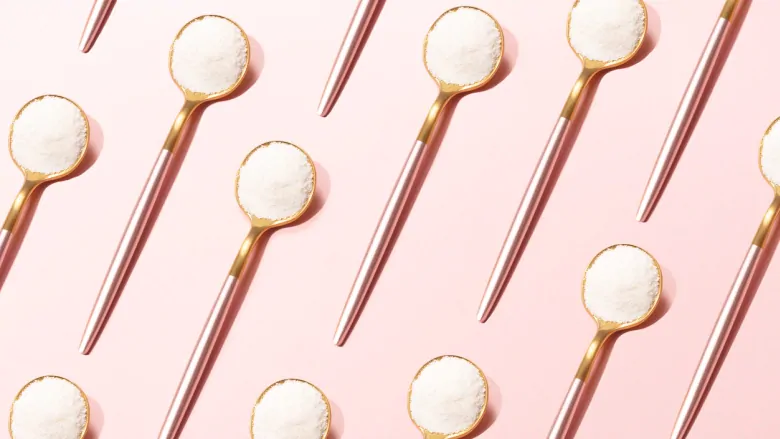

Collagen is made up of several amino acids, including glycine, proline, hydroxyproline, and arginine. It’s produced by cells in the body, and its production decreases as we age. This is why wrinkles and sagging skin are common signs of aging.
Very important for a number of reasons. It helps maintain the integrity of the skin, bones, and joints, and it’s essential for wound healing. It also helps keep the skin hydrated and supple. In addition, it plays a role in the production of enzymes, hormones, and other substances that are important for the body’s function.
In recent years, it has become a popular supplement. It’s believed to help reduce wrinkles, improve skin elasticity, and provide joint support. It’s also thought to help improve digestion, reduce inflammation, and boost the immune system.
Its supplements are available in a variety of forms, including capsules, powders, and liquid. Many people take its supplements to help improve their skin and joint health. However, it’s important to note that collagen supplements are not regulated by the FDA, so it’s important to do your research and talk to your doctor before taking any supplement.
The Key Takeaway.
It is an important protein that plays a key role in the body’s structure and function. It helps maintain the integrity of the skin, bones, and joints, and it’s essential for wound healing. In recent years, it has become a popular supplement, and many people take it to help improve their skin and joint health. However, it’s important to do your research and talk to your doctor before taking any supplement.
What is collagen?
Collagen is a protein that the body produces naturally and makes up a significant portion of our skin, bones, and connective tissues. You can also call it the “glue” that holds our body together.
What are the benefits of collagen?
Collagen has shown to have a number of potential health benefits, including promoting healthy skin, hair, and nails, supporting joint health, and improving gut health.
What are some sources of collagen?
A source of collagen is in animal products such as bone broth, chicken, fish, and beef. It is also available in supplement form, typically derived from animal sources such as bovine or marine collagen.
Are there any risks or side effects associated with collagen supplements?
Collagen supplements are safe, but some people may experience minor side effects such as digestive discomfort or a bad taste in the mouth. It is important to talk to a healthcare professional before starting any new supplement regimen.
Can collagen supplements help with aging?
Collagen supplements are a potential anti-aging remedy, as collagen production naturally declines with age. While more research is on, some studies say that collagen supplements may help improve skin elasticity and reduce wrinkles in some individuals.

